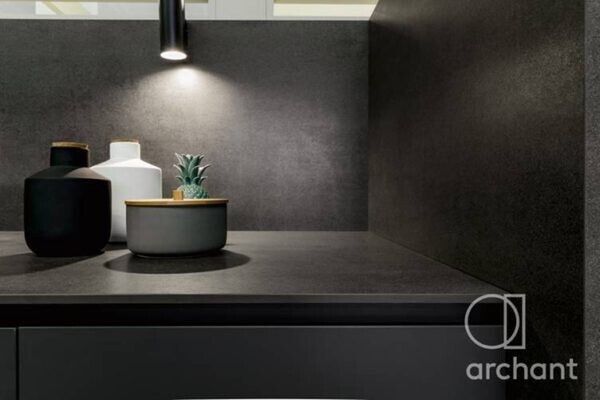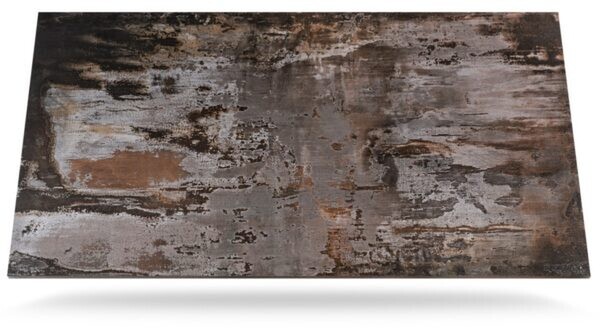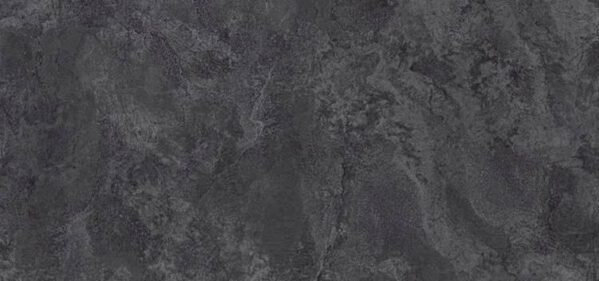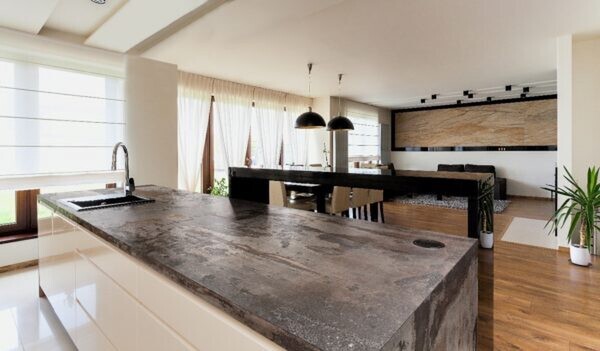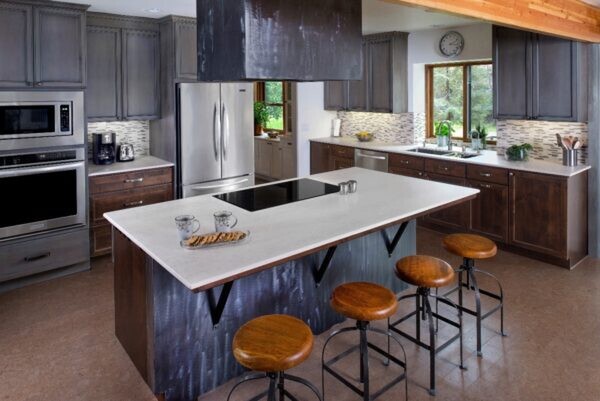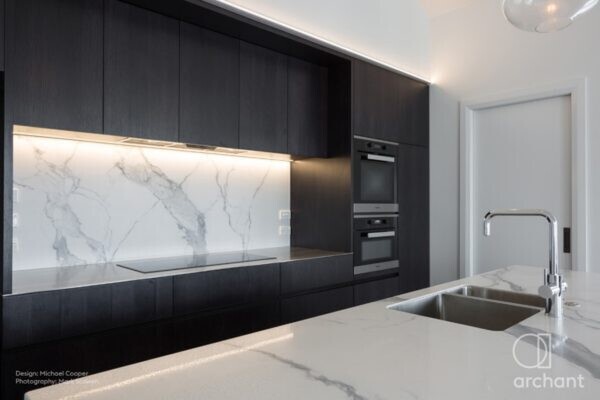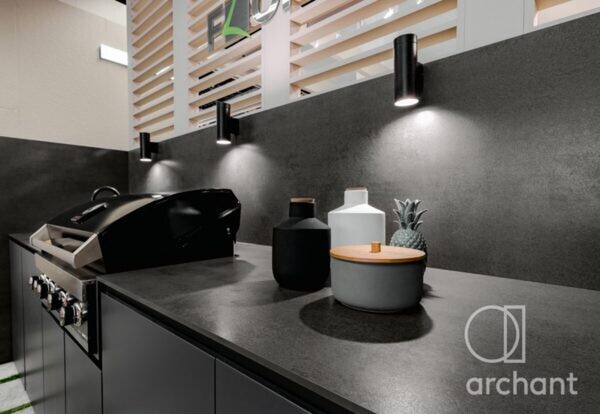If you have the privilege (or the pain) of designing your dream kitchen you most likely would have come across the names Dekton, Florim and Neolith, Ascale.
These ultra-compact surfaces are sneaking into the radar as the newest craze in kitchen benchtops and are currently considered as the ‘elite’ in countertop and splashback choice.
Although theseabove brands have similar products, they are made by completely separate companies, and each will have their reasons for being the best, they do fall under the same ‘umbrella’.
Like anything with a noticeable price tag, it is wise to be informed on the pros and cons of this relatively new product to the New Zealand Market.
Why all the hype about Dekton, Florim and Neolith, Ascale?
Dekton, Florim and Neolith, Ascale are known for their virtually indestructible qualities being scorch-proof, stain-proof, and scratch-proof.
They are created using a recipe of natural stone, glass and porcelain ingredients (each brand having its own unique formula).
These materials are brought together using a process known as Sinterized Particle Technology (SPT) This process involves mixing the raw materials under extreme pressure and heat. We’re talking compressors that squash at 3000 kgs per square centimeter and ovens that reach 1200 degrees Celsius.
This process achieves in a short space of time what takes nature thousands of years.
Dekton, Florim, Neolith, Ascale often fall under the ‘Porcelain’ name. This is not entirely accurate due to the ingredients and methods used in making them. A more accurate description for these products would be ‘ultra compact surface’ or ‘Sintered Stone’. During this article we will refer to them as ‘Sintered Stone’
*The products Dekton, Florim, Neolith, Ascale differ as their ingredients and recipes will be unique to one another.
The Top Advantages of Sintered Stone Benchtops
HEAT RESISTANT
Due to the nature of the material and the process in which these products are made, Sintered stone is able to withstand high temperatures without burning or cracking. Hot pots and appliances can be placed directly on the surface leaving no burn marks on the surface.
UV RESISTANT
Sintered stone is resistant to ultra violet (UV) light. This means that the surface will not degrade or begin to fade over time which makes it suitable for indoor and outdoor application. It is ideal for shower linings, outdoor cladding and outdoor kitchens to mention only a few of the possibilities.
SCRATCH PROOF
Sintered stone is an extremely scratch resistant surface making it a great candidate for kitchen benchtops.
STUNNING DESIGN AND TEXTURE
Dekton, Florim, Neolith, Ascale bring unmatched colours and design to the kitchen benchtop. The much desired rusted and concrete textures are unriled and make most interior designers drool over their selection. Colour and textures continue to flow in all directions.
Due to the size and thickness, designers are able to create flawless pieces of cladding, worktops, counter tops, breakfast bars, islands, hotel and shop flooring and steps, internal and external cladding. There is almost no limitation to what you are able to do.
The top disadvantages of sintered stone:
Every product on the market comes with these and it’s important to know them:
Printed designs and textures do not extend through the stone.
Colour pigments, patterns and texture do not run through the full thickness of the slab. This means that on the cut and polished ends of the stone the same colour and pattern is not shown right through the stone edge. This will not be as noticeable with a plain colour ie, black. Polished ends will not have the same finish and texture as the top surface.
Sintered stone does damage if exposed to impact, particularly on edges
The impact of items such as a pot or a plate falling on the surface can result in damage, particularly along edges. This can result in chips or cracks from the point of impact. According to consumer reports other stone benchtop materials did not have these destructive outcomes when the same impact tests were performed.
Sintered stone chips and nicks are difficult to repair
Because of the nature and way these slabs are made repairs of chips and nicks can be more difficult and noticeable than granite, marble and quartz.
Sintered stone is on the Expensive side
When compared to other stone benchtop products such as quartz (engineered stone). Sintered stone is currently sitting on the expensive end of the scale by approximately 20 – 40% The reason for this is mainly due to the specialised machinery and installation requirements for these products. Your sintered stone benchtop should only be fabricated and installed by certified benchtop fabricators.
Is Dekton, Florim, Neolith and Ascale a good product for a kitchen benchtop?
Like any product, they are not indestructible and it is good to be informed about the pros and cons before making your final decision.
As approved fabricators, we can confidently say that they are here to stay. These are exciting new products that really stand out in any space, and we look forward to seeing what possibilities they hold for future home and commercial design.
More Information:
